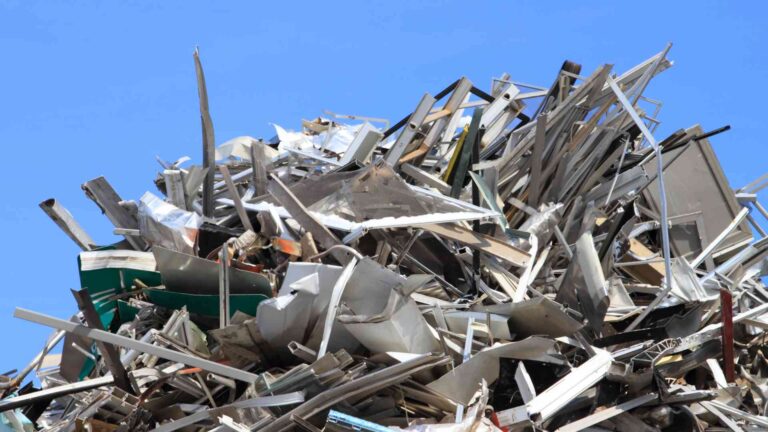The Lifecycle of Aluminum: From Scrap Metal to Everyday Goods

From the buildings we work in to the vehicles that we drive, aluminum is a cornerstone of modern infrastructure. Its unique properties make it lightweight yet durable, and unlike many materials, aluminum can be recycled indefinitely without losing its quality. This makes it a valuable resource for both manufacturers and recyclers.
In this blog, we’ll take you through the recycling journey of aluminum, and show you how Inland Steel Products makes the recycling process both easy and profitable.
Common Types of Recyclable Aluminum
Due to its widespread use in household and commercial products, aluminum is one of the easiest metals to collect and recycle. Here are some common places you can find aluminum for recycling:
- Construction Materials: Aluminum is commonly used in window frames, doors, siding, and roofing. Its durability and resistance to weather make it a popular choice in building materials
- Everyday Items: Common household items such as pots and pans, curtain rods, shelving units, and even some small appliances (like toasters) contain a high aluminum content and can be recycled when no longer needed
- Outdoor Furniture and Fixtures: Patio furniture, outdoor tables, and even some gardening tools are made from aluminum, as it resists rust and holds up well to the elements
Whether it’s old cookware, outdoor furniture, or leftover building materials, recycling your scrap aluminum with Inland Steel Products can be a convenient way to earn cash while reducing waste.
The Aluminum Recycling Process
- Collection: Aluminum scrap is collected from various sources including construction sites, households and manufacturing facilities. Inland Steel Products makes collection easy with accessible scrap metal drop-off locations across Saskatoon, Regina, Swift Current, Lloydminster, Bonnyville, and Calgary, along with convenient bin services.
- Sorting and Shredding: After collection, aluminum scrap goes through a sorting process to separate it from other metals and non-metal materials, often using techniques like magnetic separation (to remove any ferrous metals). Once sorted, the aluminum scrap is shredded or crushed into smaller pieces.
- De-coating and Cleaning: Alot of aluminum scrap comes with coatings such as paint or plastic layers. Before melting, these coatings are removed through a process called de-coating, often done in a rotary furnace where high temperatures burn off any contaminants.
- Melting and Refining: The cleaned aluminum is then melted in a furnace at around 660°C (1220°F). During melting, any remaining impurities float to the top and are skimmed off, leaving purified aluminum. Advanced refining techniques such as fluxing, further enhance the purity, ensuring the highest quality metal for transforming into new products.
- Casting into Ingots: The molten aluminum is then poured into molds to form large blocks or ingots. These ingots serve as raw material for manufacturers to create new products, from building materials to automotive parts and more.
The Environmental Benefits of Aluminum Recycling
Aluminum is one of the most recycled materials globally, with about 75% of all aluminum ever produced still in circulation today. Recycling aluminum saves up to 95% of the energy needed to produce new material and reduces greenhouse gas emissions by approximately 10 tons of CO₂ per ton recycled. This extraordinary efficiency makes aluminum recycling an essential practice for reducing environmental impact and conserving resources.
In the Prairies, Inland Steel Products has played a pivotal role in supporting aluminum recycling efforts for over 55 years. By facilitating easy, accessible recycling options, Inland Steel Products helps keep valuable aluminum resources in use, reducing the need for energy-intensive mining and processing.
RECYCLE YOUR SCRAP ALUMINUM FOR CASH
If you have scrap aluminum you’d like to recycle for cash contact our team today! We are open Monday to Friday and have six locations across Western Canada with convenient drive-in and drop-off facilities.


